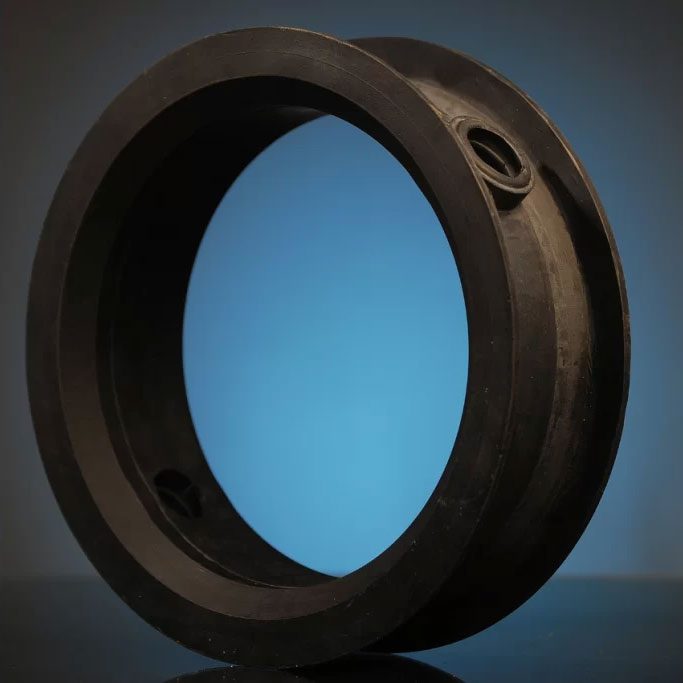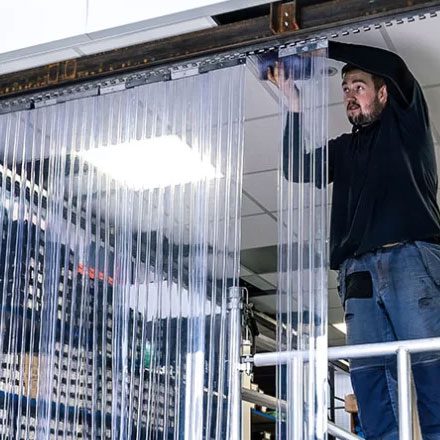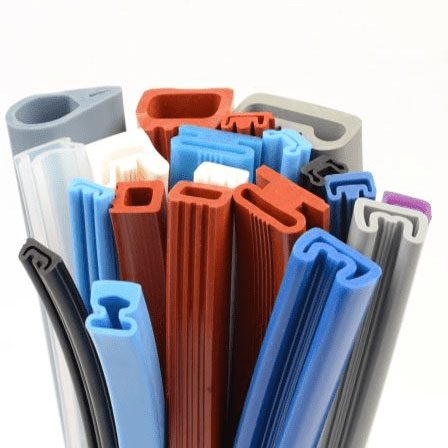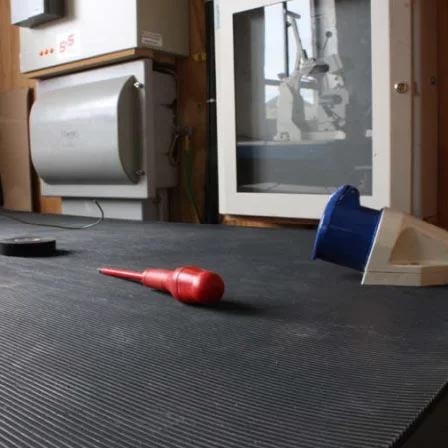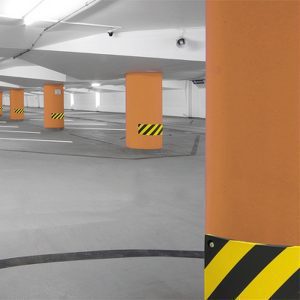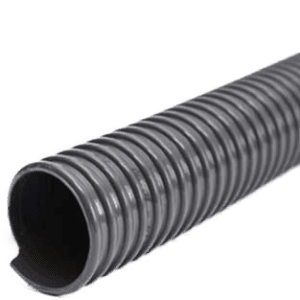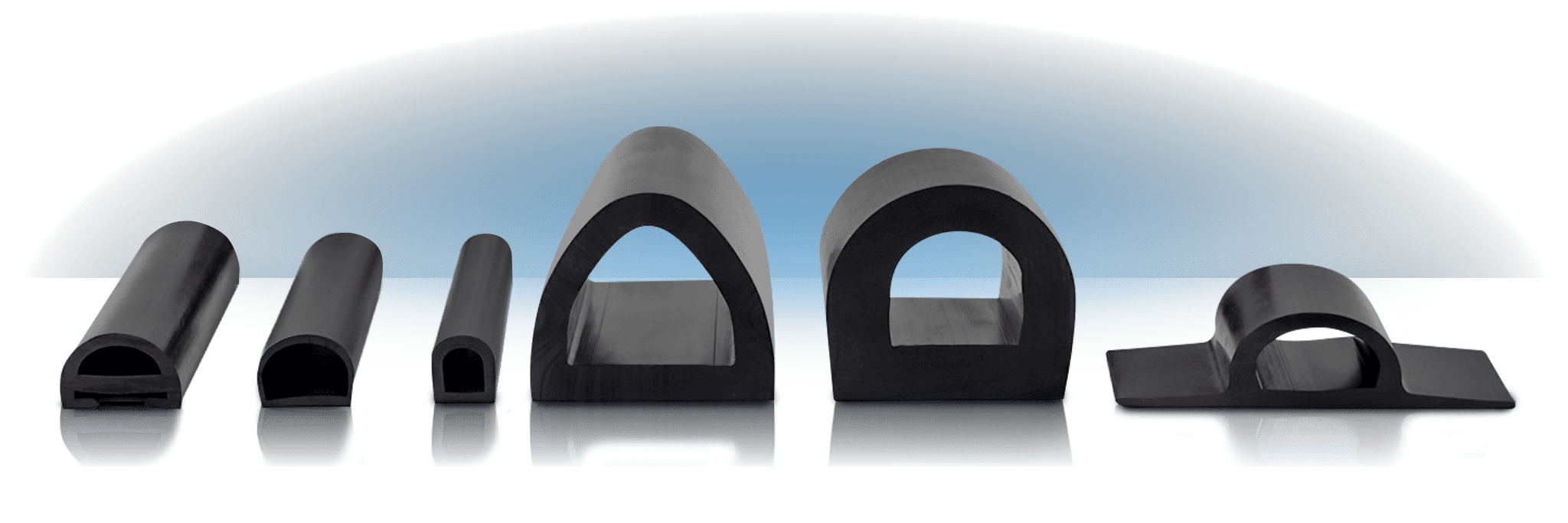
For some applications, rubber extrusions may be the answer when a fully moulded rubber part is not a viable option due to the cost involved, size required, and even something as simple as fitting constraints. For this type of part, our rubber extrusions could be the answer. It can be supplied as either a finished part, a full length to be cut and fitted on site, or even vulcanise joined into an endless length.
Whether you need a standard square section or a bespoke lip profile we manufacture rapidly and accurately in our wide range of elastomeric polymers and hardness’s to suit your application. Some compounds are available with WRAS approval or FDA/EC1935:2004 compliance.
All of our Rubber Extrusions are manufactured to RMA Class E1 or Class E2 tolerances.
What is rubber extrusion?
Rubber extrusions are a versatile product, used in a variety of applications, from weatherproofing to noise reduction. Different types of extrusions are available on the market, made from rubbers such as silicone and natural rubber, each with its unique set of properties.
How are rubber extrusions made?
Extrusion is a process where the rubber is forced through a die of the desired cross-sectional shape. The raw rubber material, or “biscuit”, is first softened by heat and then fed into the extruder. The extruder consists of a screw that turns within a heated barrel. As the screw turns, it melts the biscuit and forces it through the die. The cross-sectional die determines the final form of the extruded rubber profiles.
What are the different types of rubber extrusions?
There are two main types of extrusions made from rubber are solid and sponge. Solid extrusions are dense and have a smooth surface. Sponge extrusions are less dense and have a porous, spongy surface.
Sponge extrusions are often used in applications where they will be subject to compressions, such as door and window seals. Solid extrusions are often used in applications where resistance to wear and tear is important, such as automotive weather-stripping.
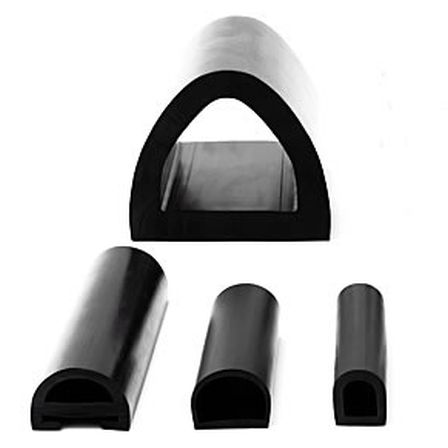
What is an extruded seal?
An extruded seal is a type of rubber seal that is made by forcing raw rubber material through a die of the desired form. This process can be used to create seals of various shapes and sizes and is popular for its versatility and affordability.
What are the benefits of rubber extrusions?
There are many benefits to using extrusions, including:
- They can be custom-made to nearly any size and shape,
- They’re weather resistant and durable,
- They have a wide range of applications,
- They have noise control qualities,
- They have vibration dampening qualities,
Extruded rubber products are an excellent choice for a range of applications requiring weather resistance, durability, and a custom fit.
What are rubber extrusions used for?
- Automotive -and Marine for panel sealing, gasket seals, and as a bonnet seal.
- Industrial, Manufacture, and Electrical
- for dust exclusion, as rubber gaskets, for gap filling and weather exclusion purposes.
- Construction for sliding doors, and sliding windows and generally as glazing seals.
Rubber seals and door seals
Rubber extrusions are also ideal for use indoors, as they help to keep out drafts, dust, and water, and can also provide insulation. There are many different types of door seals available on the market including PVC ones, Neoprene ones, EPDM ones, and silicone ones.
The different types of rubber extrusion are designed for specific applications. For example, weatherproofing rubber is typically made from a harder type of rubber, such as EPDM, which can withstand extreme temperatures and UV exposure. Softer rubbers, such as neoprene, are often used as seals for doors and other similar applications where a softer, more pliable material is required.
Can EPDM be extruded?
EPDM rubber can be extruded, but it is not the best material for the process. EPDM rubber is designed for injection moulding, not extrusion. As a result, it does not flow well and can cause problems with the extrusion process. Additionally, EPDM rubber is not as durable as other types of rubber and may not withstand the wear and tear of an extrusion process.
If you need a rubber extrusion, it is best to choose a material that is specifically designed for extrusion, such as nitrile rubber (NBR). Nitrile rubber is a synthetic rubber that is designed for extrusion and has superior resistance to wear and tear.
Cord
Our cord range is extensive. We stock a range of Neoprene sponge and solid cords from 3mm – 25mm diameter. They can be supplied either in open lengths or joined to form O-Rings.
For high temperature applications, both Viton and Silicone cords are stocked.
If your requirement is for bespoke sizes from our huge range of polymers these are available subject to minimum order quantities to RMA Class E1 tolerances.
Other Products
Rubber Strips Scrapers & Skirt
Quality Rubber Strips for Every Industry Rubber strips play a vital role in many industries. From automotive to construction, with…
Rubber Mouldings
PTM supplies rubber mouldings in the exact shape, design, and quantity you need, no matter how specific the application. We…
Rubber Bushes
PTM supplies a wide range of rubber bushes tailored to meet exact specifications in shape, style, and quantity. Whether you…
PVC Strip Curtains
Whether you are looking for PVC by roll or indivicual strips, complete hanging systems, PVC Strip curtains cut to size,…
O-Rings and Bonded Seals
Inflatable Seals
Iso-Flate™ inflatable seals are manufactured in the UK and are designed to provide efficient hermetic sealing solutions providing protection against incursions by…
Industrial Matting
Impact Protection
Hoses and Ducting
Our comprehensive range of hose and ducting is used extensively in industries throughout the country and the continent, and can be complimented with a…
Hose & Ducting Fittings
To complement our vast hose range, we stock and supply a wide range of hose fittings, clamps and assemblies. Swaging…


